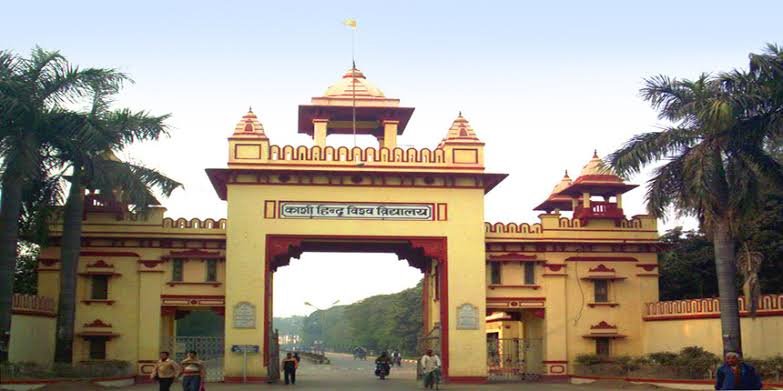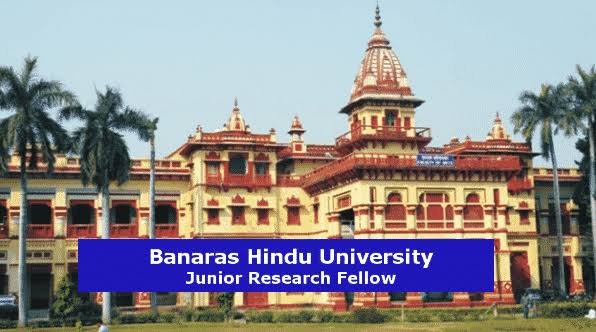Enhanced Transparency and Updated Guidelines for BHU PHD Admission Increase Candidate Opportunities and Attend to Student Concerns
Preface: Comprehending the Changes in BHU PhD Admission
One of the oldest and most prestigious universities in India, Banaras Hindu University (BHU), recently made significant adjustments to its PhD admissions procedure. Students’ concerns about the fairness and transparency of the previous selection process sparked a growing number of protests, which led to these changes.

The updated BHU PhD admission guidelines are intended to increase candidate access, guarantee a more transparent and inclusive process, and prioritize worthy scholars. The larger number of applicants chosen for interviews is the main modification to the admissions procedure. The new rules state that ten candidates per seat will now be considered for the interview stage, compared to the previous practice of only five candidates per seat being called for interviews. More prospective researchers will have the chance to be chosen for BHU’s esteemed PhD programs thanks to this modification.
The specifics of the BHU PhD admission procedure, the rationale behind the modifications, and the implications for both present and prospective applicants will all be covered in detail in this article. We will also look at the university’s efforts to resolve student complaints while maintaining an open and equitable admissions process.
Awareness of the Updated BHU PhD Admissions Procedure
Given the university’s standing and the competitive nature of its PhD programs, the BHU PhD admission procedure has generated a lot of debate among Indian academic communities. Thousands of applicants compete annually for a small number of PhD positions in a variety of fields. There are 1540 seats available in 16 faculties and 140 major subjects for the current academic year. Furthermore, 124 seats for students from affiliated colleges have been separately advertised. The university has worked to make the procedure as easy, well-structured, and open as possible.
More applicants will be interviewed for each available seat, which is the main modification to the updated BHU PhD admission procedure. The new rule permits ten candidates per seat, compared to the previous practice of only five candidates per seat being called for the interview. This implies that 15,400 applicants will be interviewed for the 1540 PhD seats that are up for grabs.
Significant student protests led to the implementation of this change, as candidates voiced concerns about the lack of opportunities to showcase their abilities and research potential. By implementing this new regulation, BHU hopes to give more candidates the opportunity to vie for the highly sought-after PhD positions.
The Effect of the Modifications on PhD Admission at BHU
It is anticipated that the BHU PhD admission procedure will be significantly impacted by the rise in the number of applicants invited for interviews. It guarantees that worthy applicants who might have been passed over in the past because of a small interview quota now have an equal opportunity to land a job.

The university hopes to increase transparency by interviewing ten candidates per seat, giving more applicants an opportunity to demonstrate their research skills. In addition to making the process more competitive, this will foster a more welcoming environment where the top applicants are chosen regardless of their experience or background.
Furthermore, the action aims to establish a more equitable system for all applicants and is a direct response to worries that the prior procedure might have been overly discriminatory or capricious.
Requirements for Admission to the BHU PhD Program
Only the most qualified applicants will be considered for the interview process because the BHU PhD admission process is extremely competitive and the university has established clear eligibility criteria for applicants. The essential qualifying criteria for potential PhD candidates are listed below:
Educational Requirement: Master’s degree in the relevant field or an equivalent degree is required of applicants to the PhD program. Candidates will be given consideration if they have successfully finished their postgraduate coursework in fields relevant to the PhD program they are applying for.
JRF Qualification: The Junior Research Fellowship (JRF) qualification is a significant component of the BHU PhD admission procedure. During the selection process, preference is given to candidates who have passed the JRF exam in categories such as UGC-JRF, CSIR-JRF, ICMR-JRF, DBT-JRF, and ICAR-JRF. This is due to the fact that JRF holders are thought to have shown a high degree of research aptitude and academic potential.

Eligibility Documents and Proof: Candidates must provide legitimate documentation, such as their JRF certificate or other credentials, attesting to their eligibility. To guarantee that they are taken into consideration during the selection process, those whose JRF has a validity period longer than two years must upload the necessary paperwork.
Academic Background: Candidates who have passed competitive exams like GATE or NET and who have earned a high percentage in their Master’s degree may have an advantage during the selection process. To make sure that only applicants with strong academic records are chosen, the university assesses applicants based on their academic records.
JRF Scholars Will Have Preference in the New BHU PhD Admissions Process
Prioritizing JRF scholars is one of the major modifications made to the BHU PhD admission procedure. There will now be a greater chance for JRF candidates who have received a scholarship from UGC, CSIR, or other reputable organizations to be accepted into BHU’s PhD program. Because of their advanced research skills and their status as research fellowship recipients, these scholars are given special consideration.
When shortlisting applicants for the interview process, the university has made sure that JRF candidates—especially those whose scholarship is still valid—will be given preference. This modification also resolves a concern expressed by numerous students who had previously qualified for JRF but were unable to enroll because of the small number of applicants being interviewed.
By prioritizing these researchers, BHU hopes to increase the number of students applying to the PhD program and to acknowledge the value that JRF holders can bring to the university’s research and academic community.
The BHU PhD Admission Interview Process: A Comprehensive Overview
A crucial part of the BHU PhD admission process is the interview process. Candidates are evaluated at this stage based on their academic credentials, research skills, and potential to advance their fields. An outline of what candidates can anticipate during the interview phase is given by the following points:

- Increase in Number of Candidates for Interview As previously stated, one of the biggest modifications to the BHU PhD admission procedure is the addition of more candidates to the interview invitation list. Ten candidates will now have the chance to present their credentials and areas of interest to the selection committee, compared to the previous practice of interviewing just five candidates per seat.
- Academic Accomplishments and Research Proposal: Candidates will be asked to provide a brief research proposal during the interview, detailing the research they plan to conduct for their PhD. The candidate’s knowledge of the topic, their research approach, and the anticipated results of their work must all be represented in this proposal. Academic accomplishments, such as research publications or other noteworthy contributions to the field, will also be taken into consideration when evaluating candidates.
- Interaction with the Interview Panel: A group of academics and subject-matter experts will engage with the candidates. The interview panel will assess the candidates’ research abilities, knowledge, and capacity to support BHU’s academic community.
The university has taken steps to guarantee that the interview process is carried out in a fair and transparent manner. The selection committee has more candidates to choose from when ten candidates are interviewed for each seat, which makes the process more inclusive and thorough.
Admission to BHU PhD Programs for Affiliated Colleges
BHU has advertised a different set of seats for students from affiliated colleges in addition to the seats available for students applying directly to the university. Students from a greater variety of institutions can now pursue their doctoral studies at BHU thanks to the 124 seats allotted for PhD programs in these colleges.
This program seeks to increase access to research and higher education while guaranteeing equal opportunities for students from BHU-affiliated colleges to apply for PhD programs. By encouraging more students to pursue higher education and research, this action is also anticipated to improve the region’s academic ecosystem as a whole.
Openness and Inclusion in the BHU PhD Admissions Procedure
Enhancing inclusivity and transparency is one of the primary objectives of the most recent modifications to the BHU PhD admission procedure. Concerns regarding the fairness of the previous system were addressed by the university administration in a proactive response to student protests. More applicants will have an opportunity to demonstrate their value with the new interview rule of ten candidates per seat, guaranteeing that no worthy applicant is passed over.
It is anticipated that increased process transparency, particularly with regard to the interview phase, will boost students’ trust in the system and inspire more people to apply for BHU research opportunities.
Final Thought: A Step in the Right Direction for a Fairer System
A major step toward a more open, equitable, and transparent selection process has been taken with the decision to update the BHU PhD admission procedure. BHU has demonstrated its commitment to equity and merit in its admissions process by expanding the pool of applicants invited for interviews and giving preference to JRF scholars.

This modification is a step in the right direction toward establishing a more equal learning environment and was made in direct response to student protests. A more inclusive procedure is likely to draw in more gifted students from all over the nation, strengthening BHU’s standing as a preeminent research and higher education institution.
In addition to resolving student complaints, the updated BHU PhD admission procedure guarantees that only the best applicants are chosen for the university’s esteemed PhD programs. The university and its academic community are anticipated to benefit long-term from these adjustments, which will promote an inclusive, equitable, and transparent culture.







